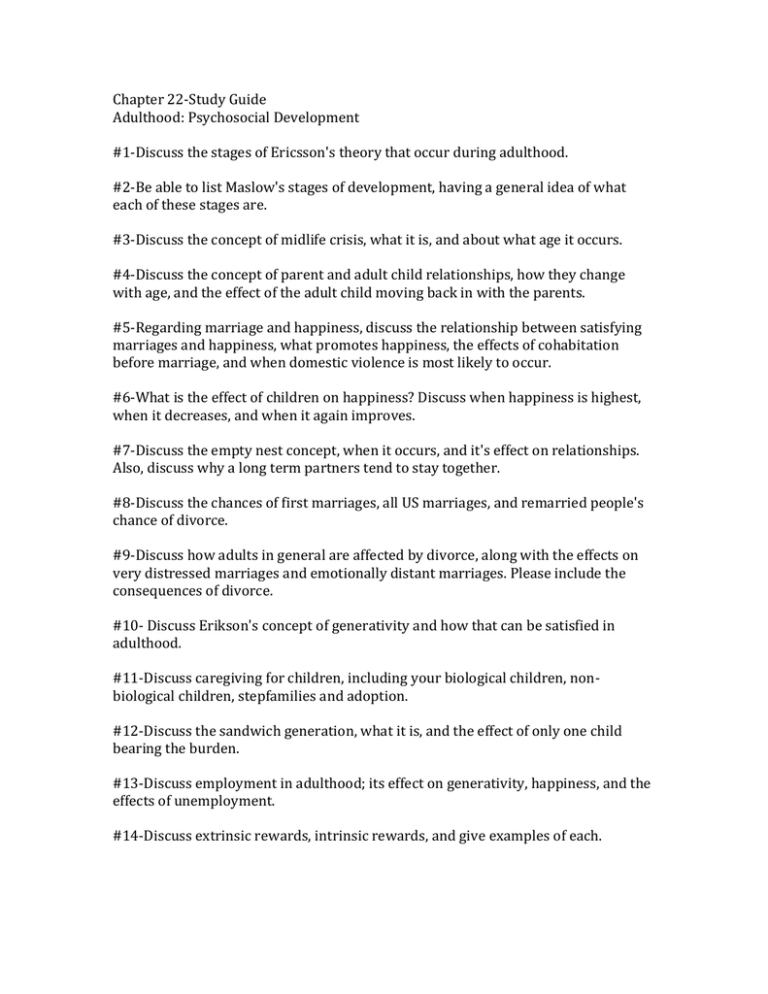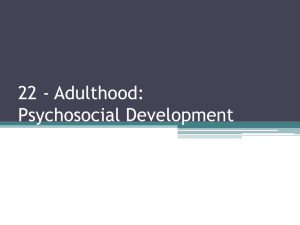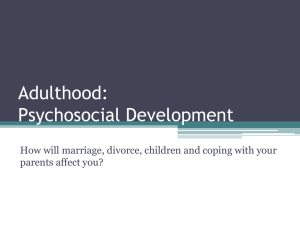Chapter 22-Study Guide Adulthood: Psychosocial Development
advertisement

Chapter 22-Study Guide Adulthood: Psychosocial Development #1-Discuss the stages of Ericsson's theory that occur during adulthood. #2-Be able to list Maslow's stages of development, having a general idea of what each of these stages are. #3-Discuss the concept of midlife crisis, what it is, and about what age it occurs. #4-Discuss the concept of parent and adult child relationships, how they change with age, and the effect of the adult child moving back in with the parents. #5-Regarding marriage and happiness, discuss the relationship between satisfying marriages and happiness, what promotes happiness, the effects of cohabitation before marriage, and when domestic violence is most likely to occur. #6-What is the effect of children on happiness? Discuss when happiness is highest, when it decreases, and when it again improves. #7-Discuss the empty nest concept, when it occurs, and it's effect on relationships. Also, discuss why a long term partners tend to stay together. #8-Discuss the chances of first marriages, all US marriages, and remarried people's chance of divorce. #9-Discuss how adults in general are affected by divorce, along with the effects on very distressed marriages and emotionally distant marriages. Please include the consequences of divorce. #10- Discuss Erikson's concept of generativity and how that can be satisfied in adulthood. #11-Discuss caregiving for children, including your biological children, nonbiological children, stepfamilies and adoption. #12-Discuss the sandwich generation, what it is, and the effect of only one child bearing the burden. #13-Discuss employment in adulthood; its effect on generativity, happiness, and the effects of unemployment. #14-Discuss extrinsic rewards, intrinsic rewards, and give examples of each.



